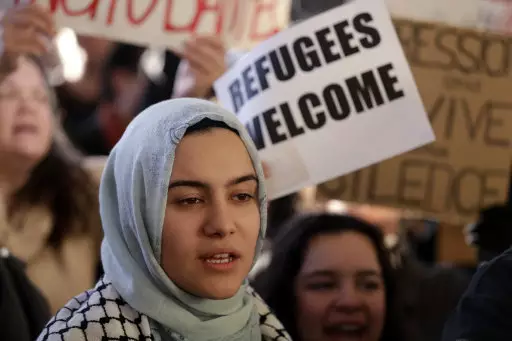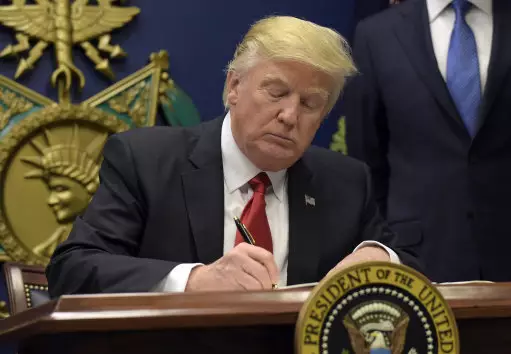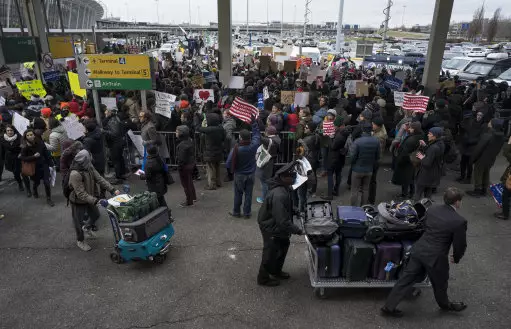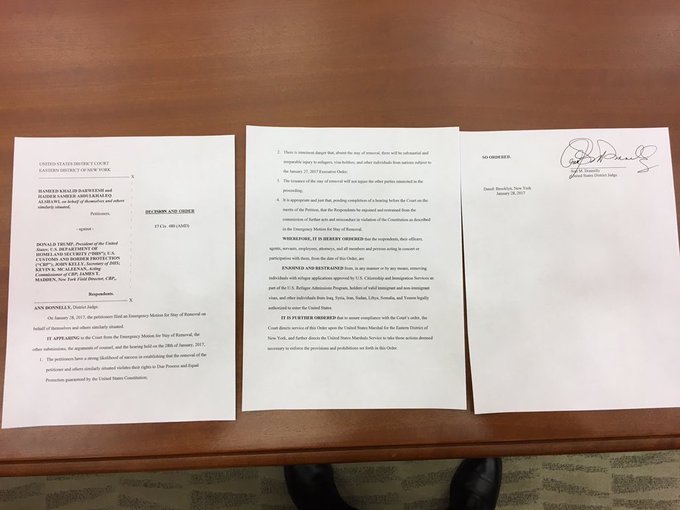
A New York judge has temporarily put a holt on deportations of people who arrived in the US with valid visas but were detained on entry, following President Trump's executive order to block travel from seven Muslim-majority countries.
The American Civil Liberties Union, immigrants' rights groups and refugee relief organisations jointly filed the action in federal court yesterday morning, on behalf of two Iraqi nationals who were detained at John F. Kennedy International Airport in New York City.
The action requested a declaration that the order is unconstitutional and for an injunction to prevent its implementation against other travellers entering the USA.
Advert
The stay is only a partial block to the broader executive order, but represents a significant blow to the new administration.
"The petitioners have a strong likelihood of success in establishing that the removal of the petitioners and others similarly situated violates the rights to Due Process and Equal Protection guaranteed by the United States Constitution," U.S. District Judge Ann Donnelly of the Eastern District of New York wrote in her order.
The order specifically forbids the federal government from deporting refugees who have been cleared by immigration authorities to enter the country.
Advert
"Obviously, we're extremely pleased," the head of the ACLU, Anthony Romero, told the Guardian. Speaking about the judge, he said, "[she] obviously gets the importance of the executive order and its impact on hundreds if not thousands of immigrants and refugees."

President Trump has signed a number of controversial executive orders since taking office. Credit: PA Images
Trump signed the order on Friday to bar all refugees from entering the USA for 120 days, keep out Syrian refugees indefinitely, and restrict travel for individuals from seven countries: Libya, Somalia, Sudan, Syria, Yemen Iran and Iraq.
Advert
"It's working out very nicely," Trump said of his executive order on Saturday. "You see it at the airports, you see it all over."
But the order sparked mass protests in airports across the country after authorities detained travellers, with especially large crowds at New York's John F. Kennedy International Airport.
Although its critics have coined it a 'Muslim ban', the new executive order does not mention any religion specifically, however all of the countries on the list have Muslim-majority populations.

People with luggage walk past protesters assembled at John F. Kennedy International Airport in New York yesterday. Credit: PA Images
Advert
The executive order means that British citizens travelling to America on UK passports will be blocked from entering if they have dual-citizenship with countries targeted in the ban.
Among those thought to be affected is Olympic gold-medal winner Mo Farah, who is a British passport holder but was born in Somalia. Although he who now lives in the US, he is understood to be away training in Ethiopia, meaning he may not be able to return to his family.
The US State Department said: "Travellers who have nationality or dual nationality of one of these countries will not be permitted for 90 days to enter the United States or be issued an immigrant or non-immigrant visa.
Advert
"Those nationals or dual nationals holding valid immigrant or non-immigrant visas will not be permitted to enter the United States during this period. Visa interviews will generally not be scheduled for nationals of these countries during this period."
Source: The Telegraph, The Guardian, Scribd and ACLU
Featured Image Credit: PA ImagesTopics: Donald Trump
